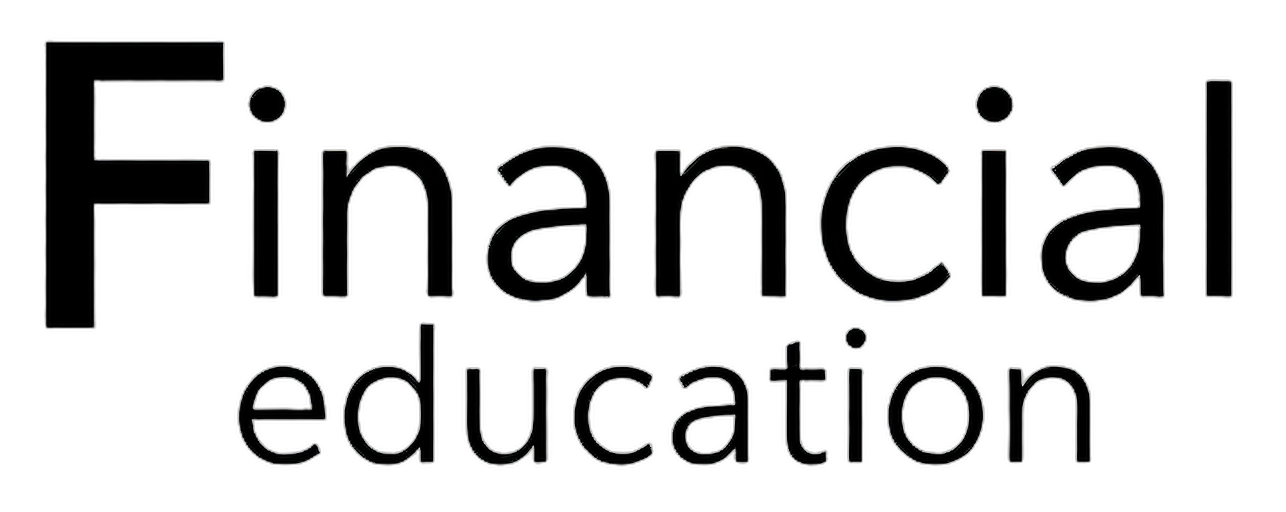Ever thought about what real financial freedom means? In today’s world, it seems like a distant dream. But, with the right financial planning, you can make it happen. This guide will show you the key steps and strategies for achieving financial freedom.
wealth management strategies you want to get out of debt, save more, or invest wisely, we’ve got you covered. Our detailed approach will guide you towards financial success.

Key Takeaways
- Understanding the true meaning and importance of financial freedom.
- Setting clear and attainable financial goals is crucial.
- Effective budgeting is the foundation for financial success.
- Eliminating high-interest debt should be a top priority.
- Investing smartly can grow your wealth over time.
What is Financial Freedom?
Financial freedom means you can live life as you want, without money worries. It’s key to understand this as you learn about personal finance.
Definition and Overview
Financial freedom means you have enough money to cover your needs without always working. It’s about managing your money well so you can handle surprises and take chances without stress. Your wealth should give you time, security, and peace of mind.
Importance of Financial Freedom
Finessing the secrets to financial freedom is crucial because it brings many benefits. It reduces stress, gives you more time for what you love, and boosts your mental health. By building wealth, you can enjoy a better life.
- Reduced Stress: Less worry about daily costs.
- More Time: Freedom to do what you enjoy.
- Increased Security: Better prepared for life’s ups and downs.
- Mental Health: A calm mind, free from money worries.
By learning to manage your finances well, you can build wealth. This path leads to true financial freedom, allowing you to live your dream life.
Setting Clear Financial Goals
Starting your journey to financial freedom begins with clear goals. These goals guide you and keep you focused on securing your financial future. Let’s explore how to define your financial freedom and create a detailed financial planning tips.
Defining What Financial Freedom Means to You
Financial freedom is personal. It might mean retiring early or living debt-free. To understand your version, think about these:
- Identify your priorities: What are your financial dreams? Do you want a home, to travel, or just financial peace?
- Assess your current situation: Know your assets, debts, income, and spending to see where you stand.
- Set specific, measurable goals: Make clear plans with deadlines, like saving for retirement or paying off loans in five years.
Creating a Financial Blueprint
With your financial dreams in mind, it’s time to make a plan. This plan will guide you to reach your goals. Here’s what to include:
| Component | Description | Benefit |
|---|---|---|
| Budgeting | Keep track of your money to control your finances. | Helps you find ways to save more by cutting costs. |
| Saving Goals | Set targets for your savings, both short and long-term. | Prepares you for emergencies and future investments. |
| Debt Management | Find ways to pay off debt fast and avoid new debt. | Reduces stress and frees up money for other goals. |
| Investment Plan | Choose investments and set aside money to grow your wealth management strategies. | Increases your financial security and creates income. |
By setting clear goals and making a detailed plan, you’re on your way to financial freedom. Keep checking and updating your plan to stay on track towards a secure financial future.
Budgeting for Financial Success
Creating a budget is key to financial health. We’ll explore monthly budgeting, tech tools for tracking, and the difference between needs and wants. By following these tips, you can reach your financial goals.
Monthly Budgeting Tips
For a good budget, track your income and expenses. This helps spot where you can save. List your income and expenses each month. Remember:
- Save some money for emergencies.
- Update your budget every month to stay on track.
- Save and invest for the future.
Staying Accountable with Budgeting Apps
Technology can help you stay disciplined with money. Apps like Mint, YNAB, and PocketGuard track your spending. They alert you to any issues and offer tips to improve. Using these apps is a smart way to manage your finances.
Distinguishing Between Needs and Wants
It’s important to know the difference between needs and wants. Needs are things you must have, like a home and food. Wants are things that make life better, like dining out and vacations.
| Category | Examples |
|---|---|
| Needs | Rent/Mortgage, Utilities, Groceries, Healthcare |
| Wants | Travel, Hobbies, Fine Dining, Subscriptions |
Focus on needs and manage wants to save more. This balance helps you stay motivated and reach your financial goals.
Building an Emergency Fund
Creating an emergency fund is key to financial stability. It’s like a safety net for unexpected costs like medical bills or car repairs. It keeps you from debt and gives you peace of mind.
To start, aim to save three to six months’ worth of living costs. This ensures you’re financially stable during crises. Start by saving a small part of your monthly income in a special account. Saving a little each month can grow over time.
Here’s how to build your emergency fund:
- Open a separate savings account.
- Set a monthly savings goal that fits your budget.
- Make savings automatic to avoid for getting.
- Save money by cutting down on unnecessary spending.
- Update your savings goal as your finances change.
Having an emergency fund keeps you financially stable. It stops you from using credit cards or loans when times are tough. Saving for emergencies helps you reach long-term goals without worry.
Eliminating Debt Strategically
Paying off debt can greatly reduce financial stress. It makes room for building wealth. By using smart debt reduction strategies, you can clear out financial burdens and take back control of your money.
Focus on High-Interest Debt First
High-interest debts, like credit card balances, should be your top priority. They grow quickly, adding to your financial load. By focusing on them first, you can cut down on interest and save money over time.
Debt Snowball vs. Debt Avalanche
There are two main debt reduction strategies: the Debt Snowball and the Debt Avalanche. The Debt Snowball method involves paying off smaller debts first. This gives you quick wins and boosts your motivation.
The Debt Avalanche method, on the other hand, targets debts with the highest interest rates first. This approach saves you more on interest in the long run.
| Debt Strategy | Main Focus | Advantage | Best For |
|---|---|---|---|
| Debt Snowball | Smallest balance debts | Quick morale boosters | Individuals needing motivation |
| Debt Avalanche | Highest interest debts | Less total interest paid | Individuals focused on long-term savings |
Choosing the Debt Snowball or the Debt Avalanche method can help you clear your debts. Both strategies are effective in reducing financial burdens. By tackling your debts strategically, you’re moving closer to financial freedom.
Investing for Your Future
Building a secure future needs a smart plan for financial growth. Knowing about different investments and diversifying can boost your long-term wealth. Let’s explore how these steps help.
Different Types of Investments
There are many types of investments, each with its own traits and returns. Here’s a quick summary:
- Stocks: These are shares in a company’s value.
- Bonds: They are loans to companies or governments that earn interest over time.
- Mutual Funds: These are groups of money from many investors for a mix of stocks and bonds.
- Real Estate: Owning property can bring in rental income or increase in value.
- Commodities: These are physical goods like gold, oil, and food.
Diversification Strategies
Diversifying your investments is crucial for managing risk. By investing in different areas, you can avoid big losses. Good strategies mix safe choices like bonds with growth options like stocks.
“Don’t put all your eggs in one basket.” — Andrew Carnegie
The Power of Compound Interest
Compound interest is a powerful tool for long-term growth. It lets your investment gains earn more gains over time. By reinvesting earnings, you can see your wealth grow exponentially. Even small, regular investments can lead to big wealth through compound interest.
Increasing Your Income for Faster Financial Freedom
To get to financial independence faster, you need to find ways to earn more. Having different income sources can help you reach your goals quicker and feel more secure.
One great way is to find additional income sources. You could do freelance work, invest in rental properties, or turn a hobby into money. For example, you can use Upwork or Fiverr for freelance jobs, or Airbnb for renting out properties.
Also, think about learning new skills or improving the ones you already have. Online courses on Coursera or Udemy can increase your knowledge and make you more attractive to employers. Meeting people in your field and going to workshops can also lead to new *income sources*.
Look into passive income too, like dividend stocks, peer-to-peer lending, or digital products. These need some work upfront but can keep giving you money over time.
“Multiple sources of income can build financial resilience and expedite your path to financial freedom.”
Here’s a quick look at different *additional income sources*:
| Income Source | Initial Investment | Potential Return | Time Commitment |
|---|---|---|---|
| Freelancing | Low | High | Moderate |
| Rental Properties | High | Very High | Low |
| Dividend Stocks | Moderate | Moderate to High | Very Low |
| Creating Online Courses | Low to Moderate | High | High |
By adding these *additional income sources* to your plan, you can earn more and get to financial freedom faster.
Finessing the Secrets to Financial Freedom
Getting to financial freedom is a mix of finding great opportunities and living comfortably. By using financial chances well, you can build a secure and wealthy future.
Maximizing Opportunities
It’s key to spot and use financial chances to master financial freedom. Look into real estate, stocks, or starting a side business. Each option can help grow your wealth and secure your money future.
- Real Estate: Investing in property can offer both rental income and long-term appreciation.
- Stock Market: Diversifying your portfolio with a mix of stocks, bonds, and mutual funds can mitigate risks and maximize returns.
- Side Hustle: Pursuing an additional income stream, whether through freelance work or a small business, can accelerate your journey to financial freedom.
Maintaining a Comfortable Lifestyle
While it’s important to grab financial chances, keeping a good lifestyle is just as crucial. The goal is to grow your investments and savings while enjoying life. Budget wisely and spend smartly to keep your current lifestyle without hurting your future finances.
In conclusion, achieving financial freedom is about two things: making the most of financial chances and keeping a good lifestyle. Remember these tips as you aim for a financially secure future.
Enhancing Your Financial Literacy
Boosting your financial literacy is key to making smart money choices. The more you know, the more confident you’ll be in handling your finances. Learning more about money helps you avoid mistakes and understand complex topics.
Financial literacy covers many areas like budgeting, investing, saving, and managing debt. Mastering these skills helps you make better financial decisions.
Here’s a quick look at important areas for improving your increasing financial literacy:
| Component | Description | Benefit |
|---|---|---|
| Budgeting | Creating and maintaining a budget to track your income and expenses. | Helps you manage spending and save money. |
| Investing | Understanding different types of investments and their risks. | Allows you to grow your wealth over time. |
| Debt Management | Strategies for paying off debt efficiently. | Reduces financial stress and saves on interest. |
| Savings | Building and maintaining an emergency fund. | Provides financial security in case of unexpected expenses. |
Improving your increasing financial literacy is a continuous journey. Stay updated with new financial planning tips and tools and strategies. This effort will help you make informed decisions all your life. The more you know, the closer you’ll get keys to financial freedom.
The Role of Credit Scores in Financial Freedom
Your credit score is keys to financial freedom. It shows how trustworthy you are with money. A good score means better loan terms and lower interest rates. This can lead to a more secure financial future.
Why Credit Scores Matter
Knowing why credit scores are important is crucial. A high score opens doors to better financial deals. This includes lower interest rates on loans and credit cards. On the flip side, a low score limits your options, making it hard to get loans or credit.
“Maintaining a strong credit score is crucial for accessing better financial services and ensuring long-term financial stability,” says Experian, a leading credit reporting agency.
How to Improve Your Credit Score
To improve your score, you need to manage your credit well. Here are some tips to help:
- Pay your bills on time: This is a big factor in your credit score.
- Reduce debt: Paying down high-interest debt lowers your credit use ratio.
- Regularly check your credit report: Look for errors or fraud that could harm your score.
- Diversify your credit mix: Having different types of credit can help your score.
| Credit Score Range | Impact on Financial Services |
|---|---|
| 300-579 | Considered very poor; difficulty in securing loans or credit |
| 580-669 | Fair; higher interest rates on loans and credit |
| 670-739 | Good; better chances of loan approval and favorable terms |
| 740-799 | Very good; access to lower interest rates and more competitive offers |
| 800-850 | Exceptional; best terms and rates available on financial services |
By focusing on credit score management, you can improve your financial health. This leads to better financial services. Stay on top of your credit score to ensure a stable and prosperous future.
Living Below Your Means
Living below your means is keys to financial freedom. It means making smart choices about spending and saving. This leads to a cost-effective lifestyle.
Frugality and Financial Success
Being frugal doesn’t mean you have to give up on life’s pleasures. It’s about spending wisely and cutting costs where you can. Simple changes like cooking at home and using public transport can make a big difference.
These habits help you manage your money better. They lead to tips for financial success and a healthier financial future.
Wealth Management Strategies
Good wealth management strategies is crucial for living within your means. Begin by making a detailed budget. This tracks all your money coming in and going out.
Save and invest before spending on things you want. Use tools like spreadsheets or apps to help. Also, look for value in what you buy. Choose quality items that last and consider second-hand options.
These steps help you use your money wisely. They support sustainable financial habits and ensure you get the most from your income.
Conclusion
After exploring how to achieve lasting wealth management strategies, you now know key strategies for financial freedom. These steps, from setting financial goals to living within your means, build a strong financial future. The key to financial freedom is not just earning more. It’s also about making smart choices, budgeting well, and investing wisely.
This guide has covered important topics like credit scores, getting rid of debt, and saving for emergencies. These are vital for a solid financial base. By using these tips and living a balanced life, you’re on your way to financial freedom.
Remember, financial freedom is a journey that needs dedication and flexibility. By following these principles, you can create a prosperous and stress-free future. This guide aims to motivate you to work towards your financial dreams and lasting wealth management strategies.

